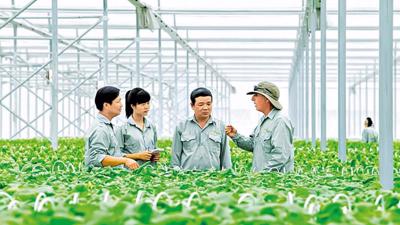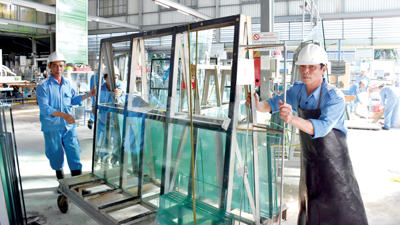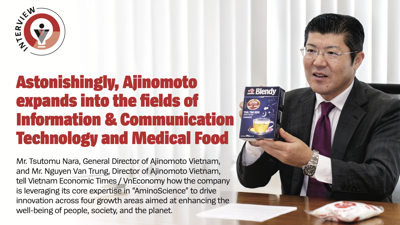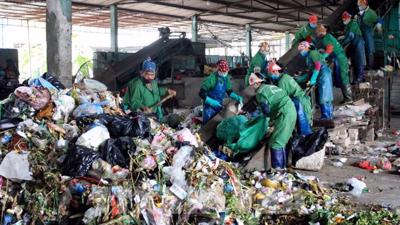Opening ceremony held for International Technology Security & Innovation Fund
Vietnam is one of eight strategic countries selected for the Fund, which will enhance semiconductor capabilities and supply chain resilience worldwide
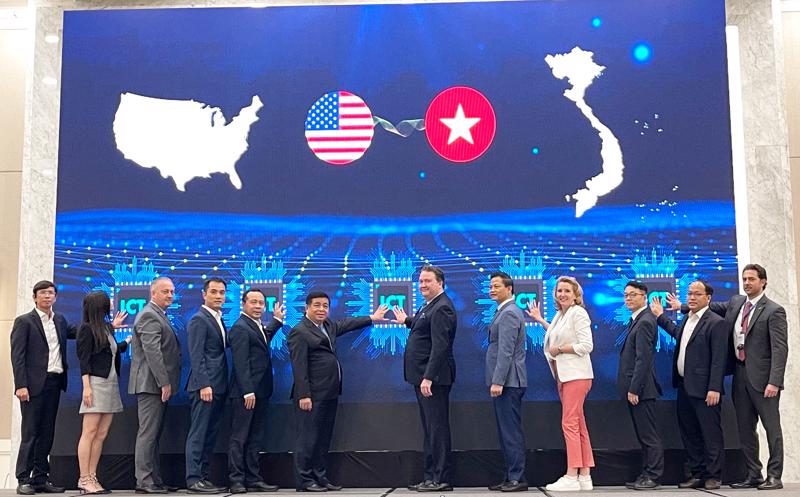
As part of celebrations of the first anniversary of the US - Vietnam Comprehensive Strategic Partnership, the Arizona State University (ASU) in partnership with the Ministry of Planning and Investment (MPI), the National Innovation Center (NIC), the US Department of State, and the US Embassy in Vietnam organized the opening ceremony for the International Technology Security & Innovation Fund (ITSI Fund).
The ITSI Fund is a key initiative of the US CHIPS and Science Act designed to enhance semiconductor capabilities and supply chain resilience worldwide.
Vietnam is one of eight strategic countries selected for the initiative, along with Costa Rica, Mexico, Panama, Indonesia, the Philippines, Kenya, and India, all supported by the State Department’s Bureau of Economic and Business Affairs. The State Department has awarded the ASU $13.8 million to drive talent development and formulate public policy recommendations in these countries.
Speaking at the ceremony, Minister of Planning and Investment Nguyen Chi Dung affirmed that this is a practical and meaningful measure to celebrate the first anniversary of the establishment of the Comprehensive Strategic Partnership for peace, cooperation, and sustainable development between Vietnam and the US and to immediately implement the “Developing Human Resources for the Semiconductor Industry to 2030, with a Vision to 2050” project that MPI has researched, developed, and submitted to the Prime Minister.
“The launch of ITSI Fund today not only marks the beginning of a new training program with international standards on packaging and testing of microchips for lecturers and students of universities in Vietnam, but is also an important step in the journey of gradually mastering technology by Vietnamese people in the semiconductor industry,” Minister Dung said. “With the support of the US and especially the participation of the ASU, I believe the increasingly deep participation and cooperation of many partners in the semiconductor ecosystem will contribute significantly to the realization of Vietnam’s goal of training 50,000 engineers and bachelors for the semiconductor industry which will soon be achieved and meet demand for semiconductor human resources at home and abroad by 2030.”
According to the Minister, in addition to cooperative activities in training and human resources development, Vietnam and the US have agreed to make innovation and high technology, especially the semiconductor industry, an important pillar of the bilateral cooperation relationship.
The US Government is committed to supporting Vietnam in building a semiconductor ecosystem, including plans to build two semiconductor training centers in Ho Chi Minh City and the NIC in Hanoi, thereby contributing to training tens of thousands of semiconductor engineers to meet the needs of the domestic and foreign economies, including US enterprises, according to the minister.
At the same time, Vietnam is also actively coordinating with the US in implementing semiconductor initiatives within the OECD framework, including the semiconductor expert network, to facilitate Vietnam’s deep participation in the global semiconductor industry supply chain, the minister noted.
Minister Dung believes that the potential for cooperation between Vietnam and the US in the semiconductor industry and other high-tech industries is enormous and has important significance for the diplomatic relations of the two countries in the new era.
“I am particularly confident that cooperation in the semiconductor and high-tech sectors will open up many opportunities for businesses in the two countries to develop and exploit the advantages of each side, bringing economic benefits to businesses and to both countries,” he said. “I urge US semiconductor companies to continue to expand their cooperation, investment, and business activities in Vietnam. US investment in and support of Vietnam’s human resources is key to opening the door to a brighter and more sustainable future, bringing great benefits to both Vietnam and the US. The Vietnamese Government and MPI are committed to supporting and facilitating the investment, business, and innovation activities of US technology companies in Vietnam.”
US Ambassador to Vietnam, H.E. Marc Knapper, highlighted the program’s importance in connecting US and Vietnamese institutions. “The US is proud to invest in Vietnam’s future through workforce development programs that create lasting partnerships,” the Ambassador said. “Together, we are building institutional ties that will shape the semiconductor industry for years to come.”
ITSI Senior Coordinator Virginia Kent emphasized the broader significance of these initiatives. “This partnership extends beyond technological advancements; it represents a shared commitment to fostering sustainable development and prosperity through innovation,” she said. “Together, we can ensure that the benefits of technological progress are widely distributed, strengthening our economies and our shared democratic values.”
Mr. Jeffrey Goss, Principal Investigator of the ITSI Program at the ASU, remarked that this collaboration opens up tremendous opportunities for Vietnamese students and professionals to gain cutting-edge skills in semiconductor technology. “ASU is honored to support Vietnam’s journey toward becoming a key player in this transformative industry,” he added.
In addition, the Semiconductor Workforce Development and Public Policy Workshop was held, with a series of strategic kick-off sessions to advance its role in the global semiconductor industry, focusing on workforce development and public policy.
The kick-off sessions will bring together key stakeholders, including leaders from the MPI, the Ministry of Information and Communications (MoIC), the Ministry of Education and Training (MoET), the Ministry of Science and Technology (MoST), the Ministry of Labor, Invalids and Social Affairs (MoLISA), the NIC, local government officials, ATP (Assembly, Testing, and Packaging) industry leaders, and academic representatives from leading engineering and technology universities and vocational colleges, to identify Vietnam’s strengths and challenges in the semiconductor sector and formulate action plans to enhance its capabilities.
The workshops are designed to develop a skilled workforce and create a supportive policy environment to attract investment and innovation in the semiconductor sector. Through this initiative, the ASU is also partnering with educational institutions so that professors and students from those institutions can receive mentoring and access to coursework to support their development. These efforts are in alignment with the ITSI Fund’s goals to diversify and expand global semiconductor ATP capabilities, ensuring a robust and resilient supply chain.
The ASU also has launched a portal offering free courses to students interested in the semiconductor industry. The platform also provides opportunities for teachers to receive certifications in semiconductor technology, acting as a hub for individuals and institutions eager to engage with this critical field.
These efforts align with the broader goals of Vietnam to position the country at the forefront of technology and innovation. By nurturing talent and enhancing policy frameworks, Vietnam is set to attract new investments and partnerships, contributing to the global semiconductor ecosystem’s resilience and growth.


